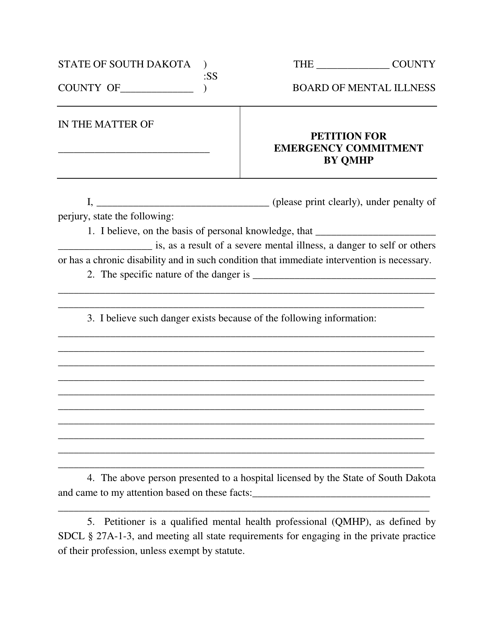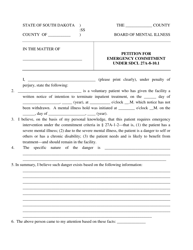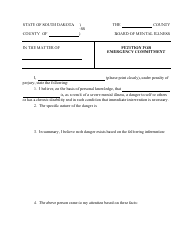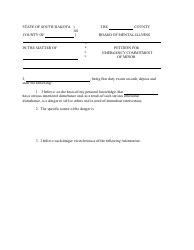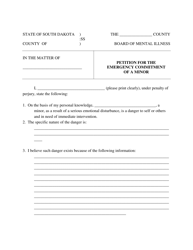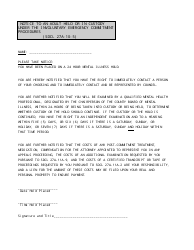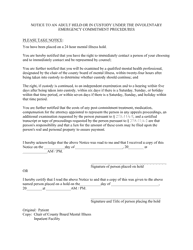This version of the form is not currently in use and is provided for reference only. Download this version of
the document
for the current year.
Petition for Emergency Commitment by Qmhp - South Dakota
Petition for Emergency Commitment by Qmhp is a legal document that was released by the South Dakota Department of Social Services - a government authority operating within South Dakota.
FAQ
Q: What is a Petition for Emergency Commitment?
A: A Petition for Emergency Commitment is a legal document that allows a Qualified Mental Health Professional (QMHP) to request the involuntary commitment of an individual to a mental health facility.
Q: Who can file a Petition for Emergency Commitment in South Dakota?
A: Only a Qualified Mental Health Professional (QMHP) can file a Petition for Emergency Commitment in South Dakota.
Q: What is a Qualified Mental Health Professional (QMHP)?
A: A Qualified Mental Health Professional (QMHP) is a licensed mental health practitioner who meets specific criteria set by the state of South Dakota.
Q: Under what circumstances can a Petition for Emergency Commitment be filed?
A: A Petition for Emergency Commitment can be filed when there is reason to believe that an individual is suffering from a mental illness and presents a danger to themselves or others.
Q: What is the process for filing a Petition for Emergency Commitment?
A: The QMHP must complete the necessary paperwork, including a detailed statement of the reasons for the emergency commitment. The petition is then filed with the appropriate court.
Q: What happens after a Petition for Emergency Commitment is filed?
A: The court will review the petition and determine whether there is sufficient evidence to support the emergency commitment. If approved, law enforcement will be authorized to transport the individual to a mental health facility.
Q: How long can an emergency commitment last?
A: An emergency commitment in South Dakota can last up to 48 hours. During this time, a mental health professional will evaluate the individual and determine whether further commitment is necessary.
Q: What rights does an individual have during an emergency commitment?
A: During an emergency commitment, individuals retain certain rights, including the right to legal representation and the right to challenge the commitment in court.
Q: Can an emergency commitment be extended beyond 48 hours?
A: Yes, if a mental health professional determines that further commitment is necessary, they can petition the court to extend the commitment for up to 60 days.
Q: What happens if an emergency commitment is not approved?
A: If the court determines that there is not enough evidence to support the emergency commitment, the individual will be released and alternative options for treatment may be explored.
Form Details:
- Released on June 28, 2012;
- The latest edition currently provided by the South Dakota Department of Social Services;
- Ready to use and print;
- Easy to customize;
- Compatible with most PDF-viewing applications;
- Fill out the form in our online filing application.
Download a printable version of the form by clicking the link below or browse more documents and templates provided by the South Dakota Department of Social Services.
